The rise of Arabic language education in Amman
By Aaron Weintraub, Jordan News
last updated: Aug 14,2021

In recent years,
Jordan has become more and more established as a hub for Arabic language
education. The rise in demand for language services here has come about, in part,
due to the economic issues and political and military uprisings that have prompted
migration to the Kingdom’s capital city. As many different populations now make
the city into the linguistic and cultural collage it has become, different language
teaching methods have developed as well.اضافة اعلان
Within every language center exists a balance between the formal education of Arabic and the implementation of cultural activities, which helps students to both grasp their curriculum and get to know their new environment. Below are four prominent institutions that not only reflect the different methods of learning Arabic in Jordan, but that also provide different cultural and creative insights into the rapidly changing and growing city that is Amman.
Qasid Institute:
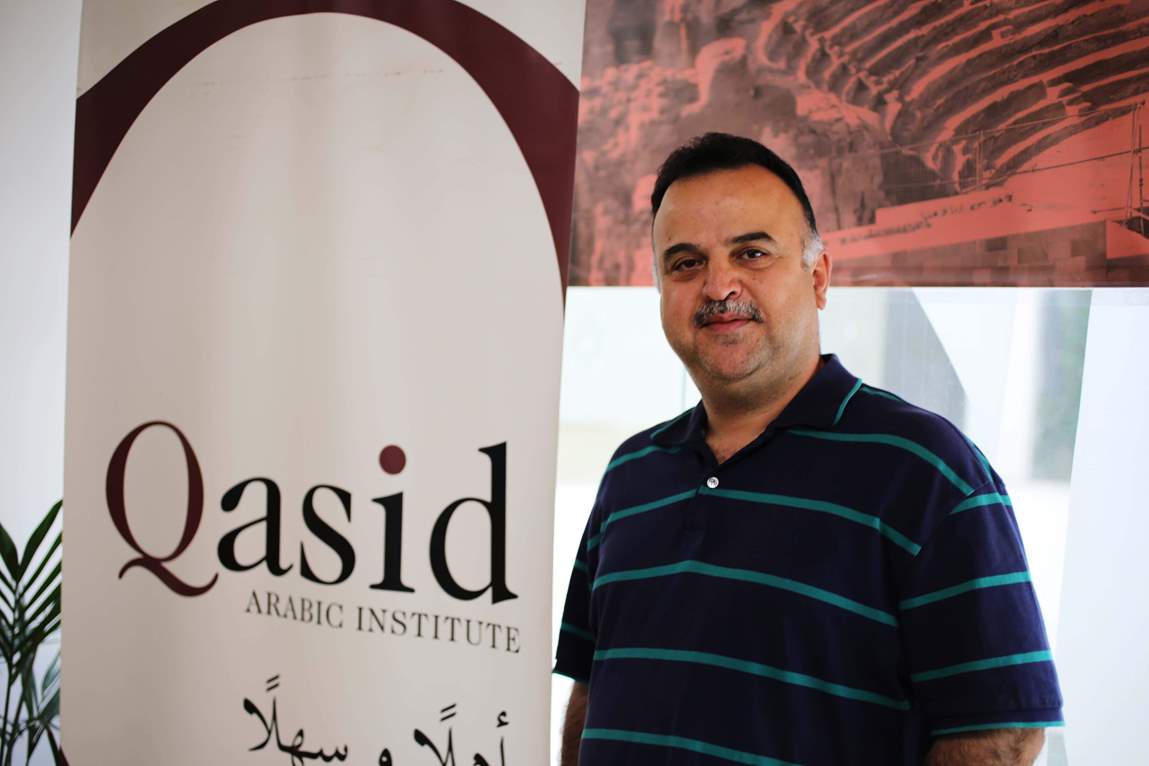
(Photo: Aaron Weintraub, Jordan News)
Khaled Abu Amsha has lost count of the number of new language centers that have opened in Amman — he stopped counting after fifty-two. Qasid Institute, where he serves as academic director, was established in 2001, long before the 2010s brought a wave of new centers to the city. “Because of what’s happened in the Arab world in the past 10 years, this has resulted in an expansion in terms of the number of centers,” he said in an interview with Jordan News.
Of the four listed centers, Qasid’s setup is by far the most formal, with five distinct levels provided for various forms of spoken and written Arabic, spanning from heavily formal to dialectically focused. “In terms of the business perspective, we have surveyed what the needs of the students are,” Abu Amsha explains. The institute has built strong formal relationships with large, primarily US universities, including Georgetown, Harvard, and Brigham Young University. “Based on these connections, we found that students are most in need of learning Modern Standard Arabic (MSA) and Classical Arabic,” said Amsha.
While many language centers focus primarily on Jordanian and Palestinian dialects, Qasid has become increasingly better-known for providing formal uses for the language to be utilized in specific professions. Other programs at Qasid have been designed specifically for students focusing on using Arabic for diplomatic positions as well as in the medical sector.
But Abu Amsha believes the availability of Classical Arabic, MSA, and amiyyeh (local dialects) are best thought of as distinct tracks that should be provided for all the students at the center, and which can be combined to fit a specific student’s needs. “There are differences in terms of vocabulary, in terms of structures, in terms of how to form the paragraph. But there are some similarities too. So that is why we have students to switch from one department to another in the first few weeks,” he said.
Sijal Institute for Arabic Language and Culture
While many language centers focus solely on language, Sijal combines both Arabic language instruction and offerings in the humanities.
Sijal, like all language institutes during the COVID-19 pandemic, began teaching online midway through the spring semester of 2020. While online coursework has been a lifeline for the institute over the past year, Katy Whiting, managing director, concedes that she is happy to have students back for in-person classes.
While Sijal has many programs and connections with universities in the US, Europe, and Australia, maintaining small class sizes is a priority. “As we expand our university partnerships, we strive to keep the same community feel.”
Along with courses, public guest lectures and seminars are also hosted by the center, though current measures for the pandemic have halted most additional events.
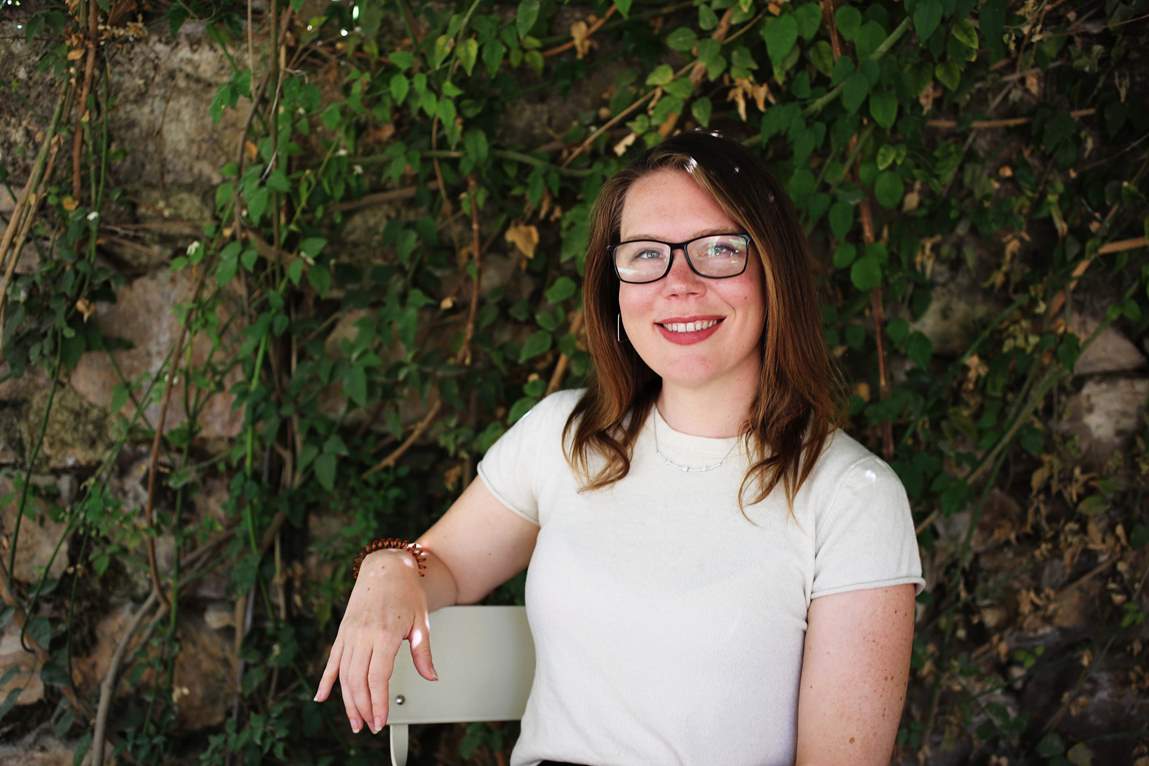
(Photo: Aaron Weintraub, Jordan News)
Sijal, like all language institutes during the COVID-19 pandemic, began teaching online midway through the spring semester of 2020. While online coursework has been a lifeline for the institute over the past year, Katy Whiting, managing director, concedes that she is excited to start welcoming new students back for in-person classes.
“I really believe in the importance of all of the little lessons that you can’t plan when studying a foreign language. What you chat about with your taxi driver, what the guy at the dukan (shop) said, the friends that you make,” explains Whiting. “There’s a big difference between chatting with someone online and talking versus going and having tea somewhere or smoking argileh somewhere. ... There is something really rich about being physically here in Jabal Amman.”
Jabal Amman, along with being a historic neighborhood, provides a space for students to access the rest of the central area of the city. Whiting explains that the cultural and linguistic focuses related to Arabic have never been considered as separate aspects of the Sijal’s curricula. “For example, in our summer program, the in-person students have it lucky. This year, they have two cultural events every week, but are also able to join the online cultural events, so they have four which is quite a lot,” she says.
Whiting is hoping to make more connections with universities in Australia, Europe, and the US, however the intimacy of the center’s small class sizes are not a factor she wants to abandon. “We really look forward to expanding our offerings but continuing to have the community feel.”
Deewan Institute:
Four years ago, in the center of Jabal Luweibdeh, the cofounders of Deewan Institute saw an opportunity to begin a language center that matched the neighborhood’s unique culture. The central-Amman neighborhood has become a popular residence of Amman’s artistic youth culture, and as a result, many foreign students and young professionals have settled near the proximity of Paris Circle.
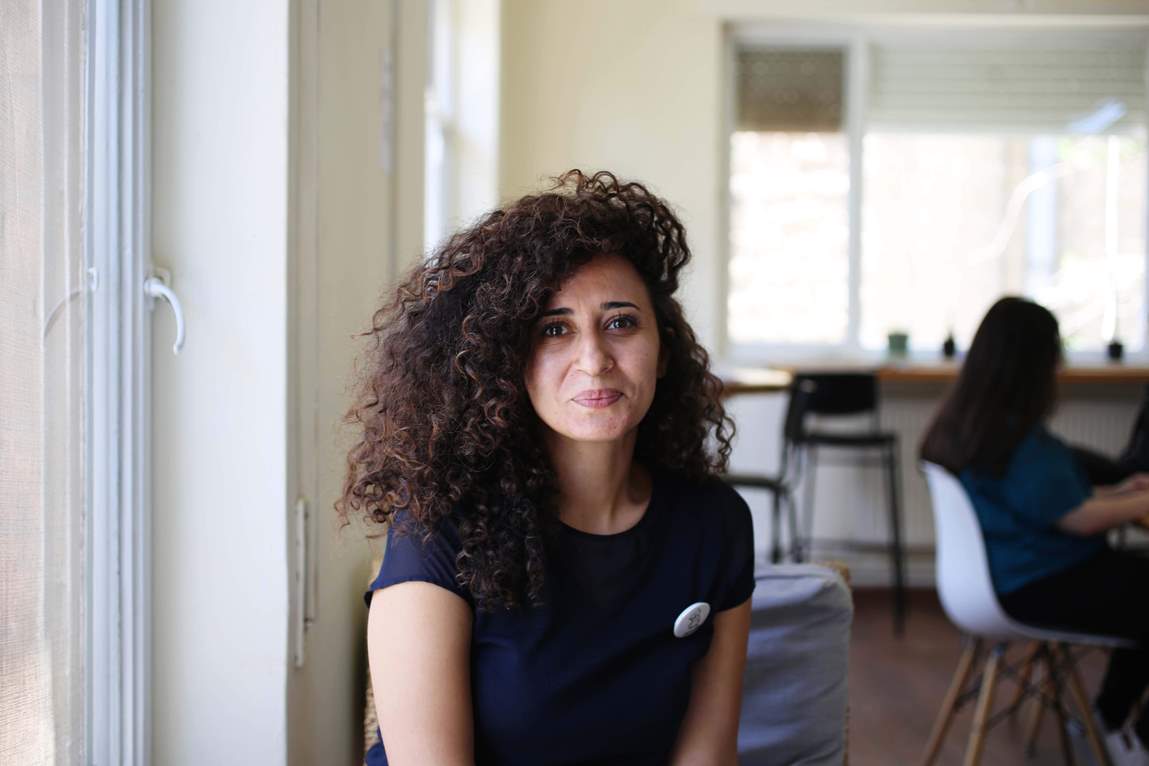
(Photo: Aaron Weintraub, Jordan News)
Duaa Kiswani explains that the location of the language center was the key to its current success and open environment: “We chose Luweibdeh because we want our students to be able to walk to the institute. So we get the comment that ‘we’re actually a few minutes’ walk away from the institute, can we come and talk?’”
For Kiswani, Deewan emphasizes accessibility, where ideas should be exchanged freely in courses. “Also what makes it different is that the classes in general are very customizable,” she adds. “One of the students said she was very happy with Deewan because she can talk in classes about things she’s very interested in and learn the vocab about these topics.”
Along with its mix of tutorials and group-classes, Deewan offers Arabic calligraphy courses and cooking classes. “It’s kind of also like a safe space environment for the students,” adds Kiswani. “(The students) can find everything at Deewan, it’s a safe space where they can talk about anything and learn.”
Jadal for Knowledge and Culture
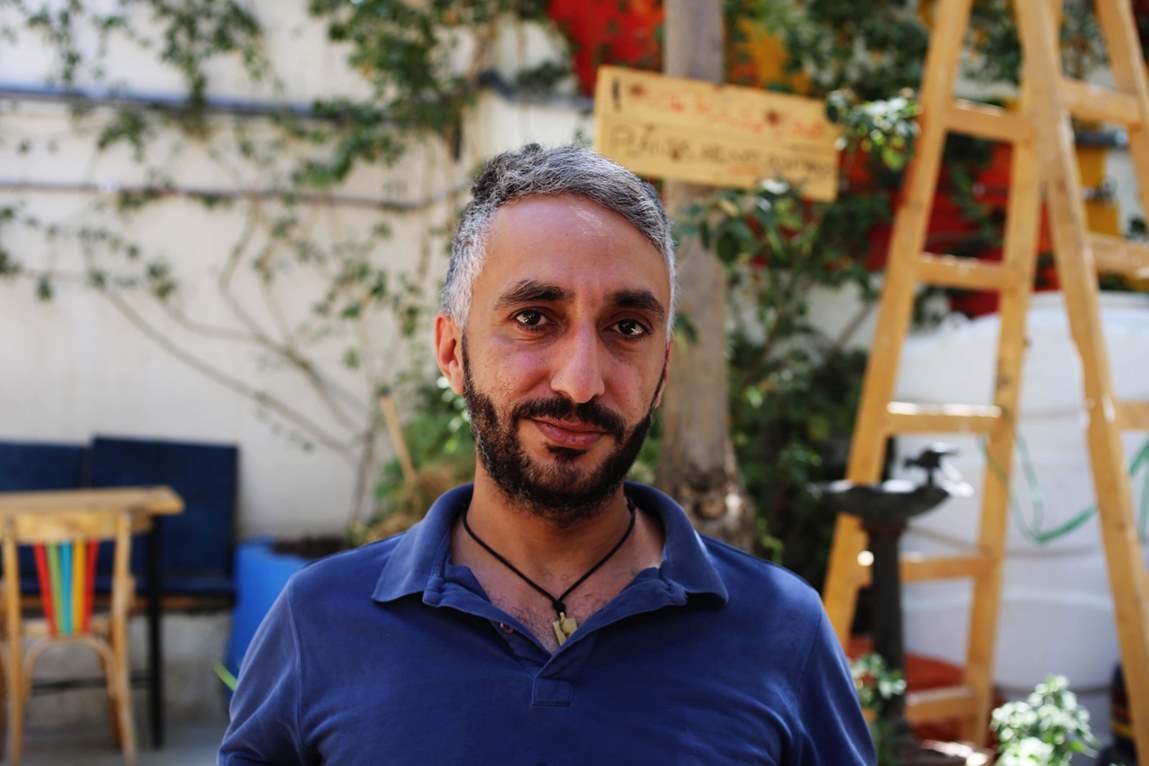
(Photo: Aaron Weintraub, Jordan News)
Of the four language centers listed, Jadal stands apart in numerous ways, which is exactly how Fadi Amireh, the space’s founder, prefers it. “What makes Jadal different is mainly its vision and mission,” he says. “Jadal is a project that aims to bring about social change by creating a safe environment for being, questioning, sharing, and discussing social and global matters.”
The cultural center holds regular events, and is open for visitors every day of the week. Twice weekly, Jadal hosts a language exchange event, which brings foreign and local patrons together from all over Amman. There are no formal courses or homework, which can be daunting for a cultural and linguistic beginner. But this is also a strength, particularly for those living centrally who want to build on their own formal studies supplementarily.
Mohamed Hazouri, one of those patrons, was just approved, along with his family, to move to Canada after fleeing from Homs to Amman in 2014. He started visiting Jadal in order to learn French. “First of all, I go to Jadal just to practice speaking,” he says. “I cannot afford the cost of a language center so this is why, most of the time, I prepare to go to Jadal or to meet someone to speak with.”
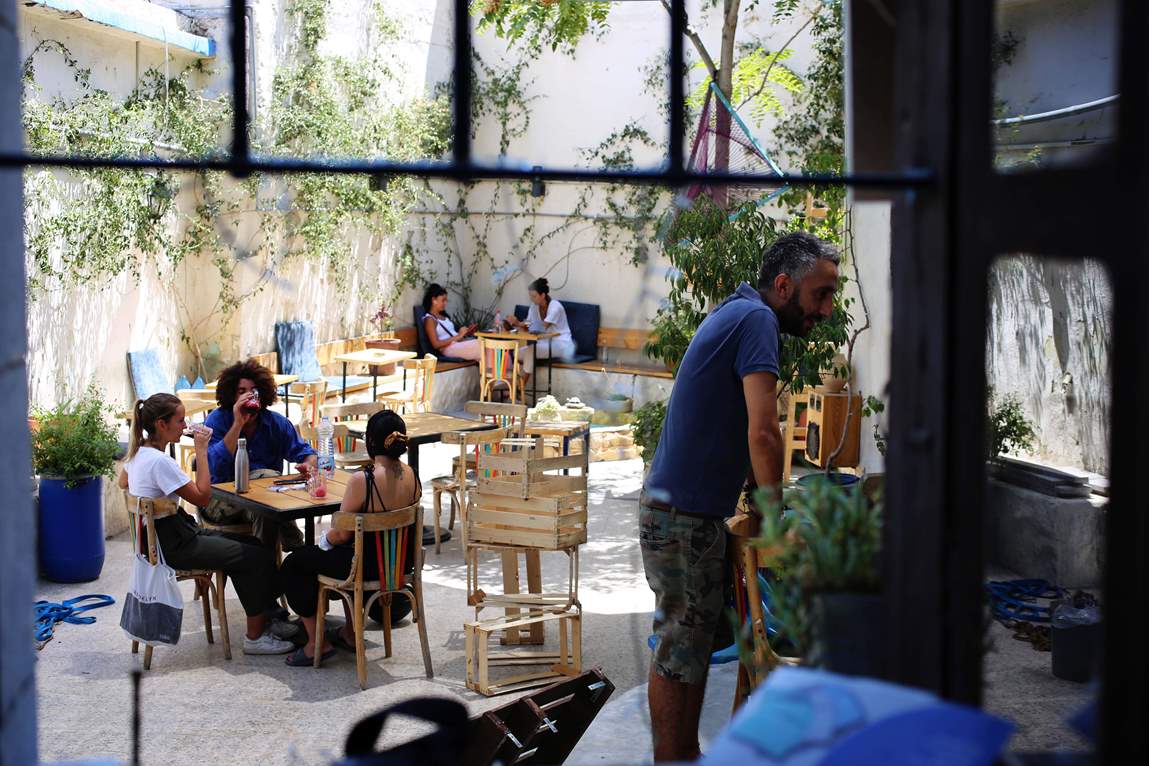
(Photo: Aaron Weintraub, Jordan News)
As Jadal has not pursued long-term online courses like other official language institutions in the city, Amireh is excited to expand their services even further post-pandemic. “We started to organize some activities now since the country is opening again,” he says. “In the past weeks we organized dabkeh courses, cultural nights, music events. Hopefully soon we will offer a critical thinking course and organize some discussions and other events.”
Read more Lifestyle
Within every language center exists a balance between the formal education of Arabic and the implementation of cultural activities, which helps students to both grasp their curriculum and get to know their new environment. Below are four prominent institutions that not only reflect the different methods of learning Arabic in Jordan, but that also provide different cultural and creative insights into the rapidly changing and growing city that is Amman.
Qasid Institute:

(Photo: Aaron Weintraub, Jordan News)
Khaled Abu Amsha has lost count of the number of new language centers that have opened in Amman — he stopped counting after fifty-two. Qasid Institute, where he serves as academic director, was established in 2001, long before the 2010s brought a wave of new centers to the city. “Because of what’s happened in the Arab world in the past 10 years, this has resulted in an expansion in terms of the number of centers,” he said in an interview with Jordan News.
Of the four listed centers, Qasid’s setup is by far the most formal, with five distinct levels provided for various forms of spoken and written Arabic, spanning from heavily formal to dialectically focused. “In terms of the business perspective, we have surveyed what the needs of the students are,” Abu Amsha explains. The institute has built strong formal relationships with large, primarily US universities, including Georgetown, Harvard, and Brigham Young University. “Based on these connections, we found that students are most in need of learning Modern Standard Arabic (MSA) and Classical Arabic,” said Amsha.
While many language centers focus primarily on Jordanian and Palestinian dialects, Qasid has become increasingly better-known for providing formal uses for the language to be utilized in specific professions. Other programs at Qasid have been designed specifically for students focusing on using Arabic for diplomatic positions as well as in the medical sector.
But Abu Amsha believes the availability of Classical Arabic, MSA, and amiyyeh (local dialects) are best thought of as distinct tracks that should be provided for all the students at the center, and which can be combined to fit a specific student’s needs. “There are differences in terms of vocabulary, in terms of structures, in terms of how to form the paragraph. But there are some similarities too. So that is why we have students to switch from one department to another in the first few weeks,” he said.
Sijal Institute for Arabic Language and Culture
While many language centers focus solely on language, Sijal combines both Arabic language instruction and offerings in the humanities.
Sijal, like all language institutes during the COVID-19 pandemic, began teaching online midway through the spring semester of 2020. While online coursework has been a lifeline for the institute over the past year, Katy Whiting, managing director, concedes that she is happy to have students back for in-person classes.
While Sijal has many programs and connections with universities in the US, Europe, and Australia, maintaining small class sizes is a priority. “As we expand our university partnerships, we strive to keep the same community feel.”
Along with courses, public guest lectures and seminars are also hosted by the center, though current measures for the pandemic have halted most additional events.

(Photo: Aaron Weintraub, Jordan News)
Sijal, like all language institutes during the COVID-19 pandemic, began teaching online midway through the spring semester of 2020. While online coursework has been a lifeline for the institute over the past year, Katy Whiting, managing director, concedes that she is excited to start welcoming new students back for in-person classes.
“I really believe in the importance of all of the little lessons that you can’t plan when studying a foreign language. What you chat about with your taxi driver, what the guy at the dukan (shop) said, the friends that you make,” explains Whiting. “There’s a big difference between chatting with someone online and talking versus going and having tea somewhere or smoking argileh somewhere. ... There is something really rich about being physically here in Jabal Amman.”
Jabal Amman, along with being a historic neighborhood, provides a space for students to access the rest of the central area of the city. Whiting explains that the cultural and linguistic focuses related to Arabic have never been considered as separate aspects of the Sijal’s curricula. “For example, in our summer program, the in-person students have it lucky. This year, they have two cultural events every week, but are also able to join the online cultural events, so they have four which is quite a lot,” she says.
Whiting is hoping to make more connections with universities in Australia, Europe, and the US, however the intimacy of the center’s small class sizes are not a factor she wants to abandon. “We really look forward to expanding our offerings but continuing to have the community feel.”
Deewan Institute:
Four years ago, in the center of Jabal Luweibdeh, the cofounders of Deewan Institute saw an opportunity to begin a language center that matched the neighborhood’s unique culture. The central-Amman neighborhood has become a popular residence of Amman’s artistic youth culture, and as a result, many foreign students and young professionals have settled near the proximity of Paris Circle.

(Photo: Aaron Weintraub, Jordan News)
Duaa Kiswani explains that the location of the language center was the key to its current success and open environment: “We chose Luweibdeh because we want our students to be able to walk to the institute. So we get the comment that ‘we’re actually a few minutes’ walk away from the institute, can we come and talk?’”
For Kiswani, Deewan emphasizes accessibility, where ideas should be exchanged freely in courses. “Also what makes it different is that the classes in general are very customizable,” she adds. “One of the students said she was very happy with Deewan because she can talk in classes about things she’s very interested in and learn the vocab about these topics.”
Along with its mix of tutorials and group-classes, Deewan offers Arabic calligraphy courses and cooking classes. “It’s kind of also like a safe space environment for the students,” adds Kiswani. “(The students) can find everything at Deewan, it’s a safe space where they can talk about anything and learn.”
Jadal for Knowledge and Culture

(Photo: Aaron Weintraub, Jordan News)
Of the four language centers listed, Jadal stands apart in numerous ways, which is exactly how Fadi Amireh, the space’s founder, prefers it. “What makes Jadal different is mainly its vision and mission,” he says. “Jadal is a project that aims to bring about social change by creating a safe environment for being, questioning, sharing, and discussing social and global matters.”
The cultural center holds regular events, and is open for visitors every day of the week. Twice weekly, Jadal hosts a language exchange event, which brings foreign and local patrons together from all over Amman. There are no formal courses or homework, which can be daunting for a cultural and linguistic beginner. But this is also a strength, particularly for those living centrally who want to build on their own formal studies supplementarily.
Mohamed Hazouri, one of those patrons, was just approved, along with his family, to move to Canada after fleeing from Homs to Amman in 2014. He started visiting Jadal in order to learn French. “First of all, I go to Jadal just to practice speaking,” he says. “I cannot afford the cost of a language center so this is why, most of the time, I prepare to go to Jadal or to meet someone to speak with.”

(Photo: Aaron Weintraub, Jordan News)
As Jadal has not pursued long-term online courses like other official language institutions in the city, Amireh is excited to expand their services even further post-pandemic. “We started to organize some activities now since the country is opening again,” he says. “In the past weeks we organized dabkeh courses, cultural nights, music events. Hopefully soon we will offer a critical thinking course and organize some discussions and other events.”
Read more Lifestyle


